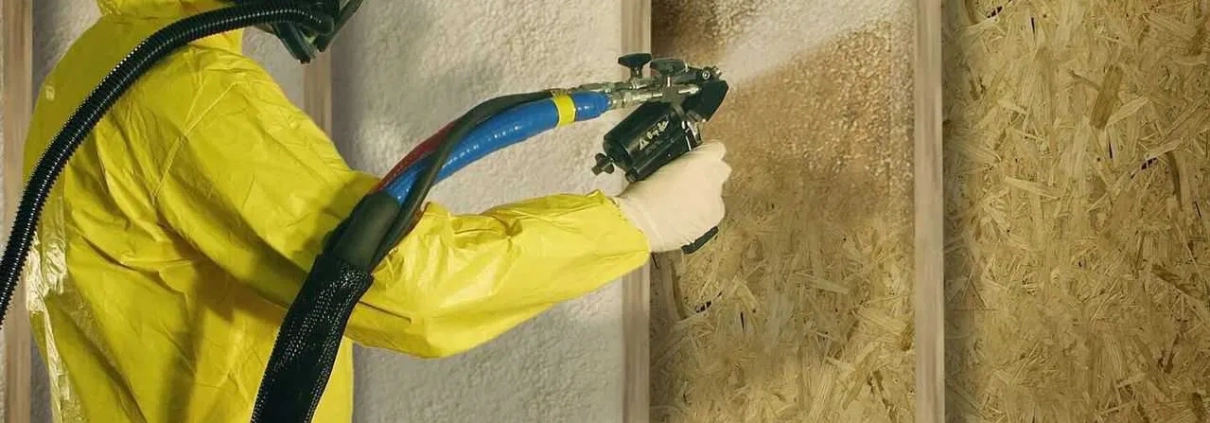Insulation plays a crucial role in maintaining comfortable indoor temperatures, improving energy efficiency, and reducing heating and cooling costs. With various types of insulation available, understanding their characteristics, benefits, and drawbacks can help you make an informed choice for your home or building. This article will explore different types of insulation, their applications, and how they can be effectively installed to maximize their performance.
What Is Insulation?
Insulation is a material that slows down the transfer of heat between the inside and outside of a building. By reducing heat flow, insulation helps maintain a consistent indoor temperature, which is vital for comfort and energy efficiency. Insulation can be installed in various areas, including walls, attics, basements, and crawl spaces.
Types of Insulation
There are several types of insulation, each with unique properties, benefits, and ideal applications. Here’s a closer look at the most common types:
1. Fiberglass Insulation
Overview
Fiberglass insulation consists of tiny glass fibers and is available in batts, rolls, or loose-fill forms. It is one of the most popular insulation materials due to its effectiveness and affordability.
Benefits
- Cost-Effective: Fiberglass insulation is generally one of the least expensive insulation options available.
- Fire Resistant: It does not burn easily, making it a safe choice for residential applications.
- Sound Absorption: Fiberglass can help reduce noise transmission between rooms.
Drawbacks
- Irritation: The tiny glass fibers can irritate the skin, eyes, and lungs during installation, so protective gear is necessary.
- Moisture Sensitivity: If it becomes wet, fiberglass insulation can lose its effectiveness and promote mold growth.
Applications
Ideal for walls, attics, and floors, fiberglass insulation is commonly used in both residential and commercial buildings.
2. Foam Board Insulation
Overview
Foam board insulation is made from polystyrene, polyisocyanurate, or polyurethane and is available in rigid panels. This type of insulation provides a high R-value per inch, making it effective in space-constrained areas.
Benefits
- High Insulating Value: Foam board insulation has a high R-value, meaning it provides excellent thermal resistance.
- Moisture Resistant: It is impervious to moisture, making it suitable for areas prone to water exposure.
- Easy to Install: The rigid panels can be easily cut to fit specific spaces.
Drawbacks
- Cost: Foam board insulation can be more expensive than other options.
- Limited Sound Absorption: While it is effective for thermal insulation, it does not offer significant soundproofing qualities.
Applications
Commonly used in exterior walls, basement walls, and foundations, foam board insulation is ideal for improving energy efficiency in new construction or renovations.
3. Spray Foam Insulation
Overview
Spray foam insulation is a mixture of chemicals that expands upon application, filling gaps and crevices to create an airtight seal. It is available in two types: open-cell and closed-cell.
Benefits
- Air Sealant: It provides excellent air sealing, reducing drafts and energy loss.
- High R-Value: Closed-cell spray foam has a high R-value, making it one of the most efficient insulation types.
- Moisture Barrier: It acts as a moisture barrier, helping to prevent mold growth.
Drawbacks
- Cost: Spray foam insulation can be one of the more expensive insulation options.
- Professional Installation Required: Proper application requires skilled professionals to ensure effectiveness and safety.
Applications
Spray foam insulation is ideal for attics, crawl spaces, and areas with irregular shapes where traditional insulation may not fit.
4. Cellulose Insulation
Overview
Cellulose insulation is made from recycled paper products and is treated with fire retardants. It is typically used as loose-fill insulation, which can be blown into attics and walls.
Benefits
- Eco-Friendly: Made from recycled materials, cellulose insulation is an environmentally friendly choice.
- Good Sound Absorption: It can effectively reduce noise between rooms.
- Pest Resistance: Treated cellulose can deter pests like rodents.
Drawbacks
- Settling: Over time, cellulose insulation may settle, reducing its effectiveness.
- Moisture Absorption: It can absorb moisture, potentially leading to mold issues if not properly installed.
Applications
Cellulose insulation is commonly used in attics, walls, and floors, especially in retrofits and existing homes.
5. Mineral Wool (Rock Wool) Insulation
Overview
Mineral wool insulation is made from natural or recycled materials, including basalt rock and slag. It is available in batts, loose-fill, and rigid board forms.
Benefits
- Fire Resistant: Mineral wool is non-combustible and can withstand high temperatures.
- Sound Proofing: It provides excellent soundproofing qualities, making it ideal for multi-family dwellings.
- Water Resistant: It does not absorb water, making it less susceptible to mold growth.
Drawbacks
- Cost: It can be more expensive than fiberglass insulation.
- Installation: Like fiberglass, it can irritate the skin and lungs during installation.
Applications
Mineral wool is suitable for walls, ceilings, and floors, particularly in commercial buildings and industrial applications.
6. Reflective or Radiant Barrier Insulation
Overview
Reflective insulation consists of a layer of reflective material, usually aluminum foil, that reflects radiant heat away from living spaces. It is commonly used in hot climates to keep homes cool.
Benefits
- Energy Efficiency: It helps reduce cooling costs by reflecting heat away from the home.
- Lightweight: The materials used are lightweight and easy to install.
Drawbacks
- Limited Effectiveness in Cold Climates: Reflective barriers are less effective in cold weather as they do not provide thermal resistance.
- Requires Air Space: For optimal performance, reflective insulation needs to be installed with an air space.
Applications
Best suited for attics and roofs, reflective insulation is particularly beneficial in warmer climates.
How to Stop Insulation Problems
While insulation is essential for energy efficiency and comfort, improper installation or maintenance can lead to issues. Here are some strategies to prevent common insulation problems:
1. Ensure Proper Installation
- Hire Professionals: For complex installations, consider hiring a professional. Proper installation is crucial for maximizing the performance of insulation.
- Follow Manufacturer Guidelines: Adhere to the manufacturer’s instructions for installation to ensure the insulation performs as intended.
2. Inspect Regularly
- Check for Settling: In loose-fill insulation, such as cellulose, monitor for settling over time. Refill or add insulation as necessary.
- Look for Moisture: Regularly inspect areas prone to moisture, such as attics and crawl spaces, for signs of water damage or mold growth.
3. Ventilate Properly
- Maintain Airflow: Proper ventilation in attics and crawl spaces can help prevent moisture buildup, which can compromise insulation effectiveness.
- Use Exhaust Fans: In areas like kitchens and bathrooms, exhaust fans can help remove excess humidity, reducing the risk of moisture-related issues.
4. Choose the Right Material
- Consider Climate: Choose insulation materials suited for your climate. For example, reflective insulation is excellent for hot climates, while fiberglass may be better for cooler areas.
- Evaluate Performance: Consider the R-value of the insulation and select materials that provide adequate thermal resistance for your home.
5. Seal Gaps and Cracks
- Air Leaks: Use caulk or foam sealant to fill gaps and cracks around windows, doors, and other areas where air can escape. This helps improve overall energy efficiency.
- Duct Sealing: Ensure that HVAC ducts are properly sealed to prevent air loss and maintain system efficiency.
Conclusion
Choosing the right type of insulation is crucial for enhancing energy efficiency, maintaining comfort, and protecting your home from moisture and pests. Understanding the various types of insulation—such as fiberglass, foam board, spray foam, cellulose, mineral wool, and reflective barriers—will help you make an informed decision based on your needs and budget.
By ensuring proper installation, regular inspections, and appropriate ventilation, you can effectively stop insulation problems before they arise. Whether you’re building a new home or renovating an existing one, investing in quality insulation will pay off in energy savings and comfort for years to come.


